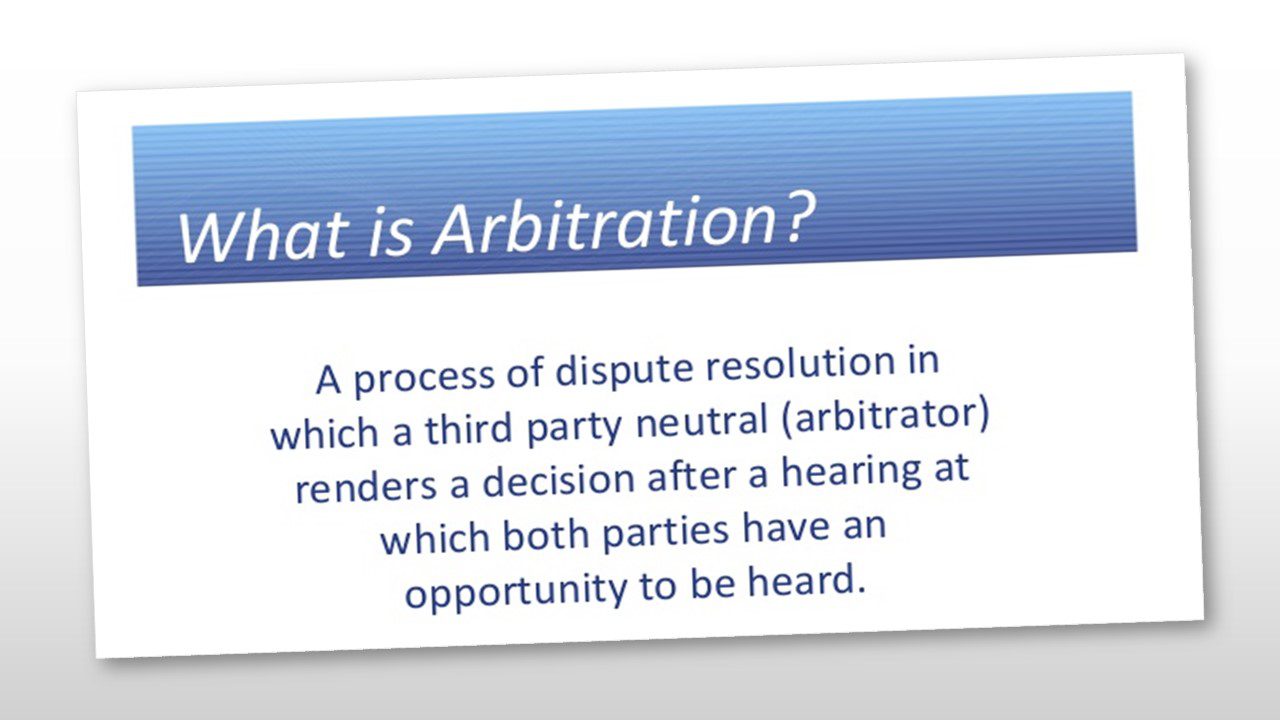Arbitration as an Alternative to Litigation
 While most attorneys seek to help clients through negotiating and resolving issues to avoid any need to file complaints and go to court, there are times when a third party is needed to decide a dispute. In baseball parlance, the parties need someone to call balls and strikes. Generally, this person is a judge and we wait patiently for a court date to appear and advocate for our clients, asking the court to call the pitch in our favor. Unfortunately, between pandemic restrictions and substantial court backlogs, getting into court is far more challenging and the need for arbitration as an alternative to litigation is apparent.
While most attorneys seek to help clients through negotiating and resolving issues to avoid any need to file complaints and go to court, there are times when a third party is needed to decide a dispute. In baseball parlance, the parties need someone to call balls and strikes. Generally, this person is a judge and we wait patiently for a court date to appear and advocate for our clients, asking the court to call the pitch in our favor. Unfortunately, between pandemic restrictions and substantial court backlogs, getting into court is far more challenging and the need for arbitration as an alternative to litigation is apparent.
In July 2018, Pennsylvania largely adopted the Revised Uniform Arbitration Act, 42 Pa.C.S. 7302, et al., which demonstrated a commitment to uniform application of law across the Commonwealth. While well-established and commonly practiced in many areas of law, arbitration has not been as widely accepted in domestic relations cases.
However, as the Philadelphia Family Court remains closed to the general public as a result of COVID-19 – and has cancelled all listings through year-end if scheduled prior to March 16 – practitioners cannot help but worry that the resulting delay will create greater problems between the parties than the initial dispute. For example, a business owner who has suffered a great change in their income might find that an eight-month delay to have a hearing to modify support causes immense uncertainty and unnecessary cash flow issues. Likewise, where there are discrete issues of disagreement in a divorce case, such as the division of personal property or the determination of credits between parties, a lengthy waiting period coupled with additional support which might be due during that time can create resentment as well as financial stress.
Arbitration is a form of Alternative Dispute Resolution (ADR), processes which offer a replacement for traditional litigation. To arbitrate a dispute, the parties mutually select a neutral individual to act as the decisionmaker, who takes on the role of a judge. The individual may be a retired judge or experienced attorney. Since the outcome is generally binding on both parties – meaning, the parties agree in advance to abide by the arbitrator’s decision regardless of the outcome – it is in the parties’ best interest to select an individual with a great deal of family law experience and good judgment who can weigh both positions and issue a fair decision. The benefits of arbitrating a dispute rather than litigating lean toward efficiency and complexity. Some parties agree to sharing the cost of the arbitrator, while others agree to let the arbitrator assess payment of fees based on the award. Some parties also agree to forego appearing before the arbitrator, allowing for the issues to be decided based on evidence provided by both parties.
Regardless, disputes can be addressed much more quickly before an arbitrator than filing paperwork to generate a court hearing. In addition, because the rules of evidence are often relaxed in favor of efficiency, arbitrated cases tend to move much more quickly and generate a timely decision. For example, in cases where there are competing business valuations and complex income issues, it might take up to five days to try the case in court because of the necessary foundations, direct examination of the experts and cross-examinations of witnesses. The same case might be arbitrated in a single day, with both sides submitting the evidence they plan to rely upon in advance so that: 1) it can be fully reviewed by the arbitrator; and 2) the hearing time can be dedicated to answering questions. While the parties are paying for the arbitrator’s time, they are not paying their lawyer to spend five days in court. Arbitrators also tend to issue more thorough decisions since their time is not being divided between multiple cases.
Given the anticipated court delays and the cost in both time and money, it is a disservice not to suggest arbitration when an agreement is simply not possible. I can easily recommend a few practitioners to serve as family law arbitrators, each of whom has the experience to carefully and thoroughly review evidence and make a fair determination. I am also experienced and available to serve as an arbitrator in family law cases that require a thoughtful eye, particularly with single issue concerns where a short arbitration – whether in person or by videoconference – can resolve the dispute quickly and with minimal cost.
Unfortunately, arbitration is not an option in all family law cases, including custody matters. But a careful look at its appropriateness and effectiveness in divorce and support cases is prudent, and now necessary, given the pandemic-related inability to timely access the court.
Comments are closed.
